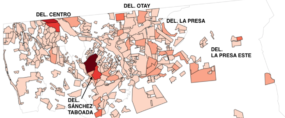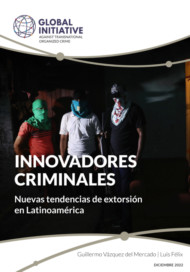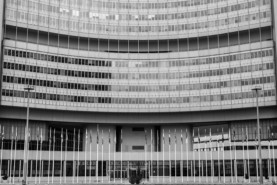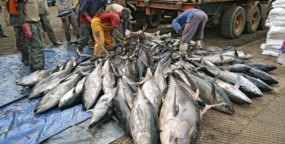Governments and NGOs around the world expended significant time and effort to bring the Framework Convention on Tobacco Control (FCTC) into effect in 2005. The convention’s purpose is to reduce tobacco related deaths, estimated by the WHO at 6 million per year. The FCTC has achieved significant levels of ratification (168 at time of drafting, with 179 states parties) making it one of the most ratified international treaties in the world. and is generally been hailed a major achievement by public health advocates because of the binding obligations on parties.
But while political momentum behind the Convention appears significant, where the FCTC has failed to achieve credible impact is in implementation. This has been specifically recognised in the latest draft of the UN post 2015 development goals, where strengthening the implementation of the FCTF is the first proposed modality for achieving Goal 3: Promoting healthy lives and well-being for all.
Some of the FCTC’s obligations concern improving policy responses to illicit trade, and failure to comply can result in international liabilities for non-compliant states.
The illicit trade in tobacco products has major impact on public health, as it undermines the effectiveness of government smoking-related policies. According to the World Health Organisation illicit trade “undermines price and tax measures for tobacco control; thereby increases the accessibility and affordability of tobacco products”. This, in turn, has “adverse effects on public health and well-being, in particular of young people, the poor and other vulnerable groups”. And this has “disproportionate economic and social implications on developing countries and countries with economies in transition”.
Essentially the problem is that smuggled tobacco is much cheaper than legitimate and taxed tobacco, which boosts consumption amongst price-sensitive groups: typically those in the developing world. Of course at the same time, this diversion into illicit markets also reduces government revenues for service providers and other governance priorities.
The FCTC has a specific anti-illicit trade protocol that will enter into force once ratified by 40 parties to the convention. This contains a number of requirements that will come into effect after the protocol enters force. However, already today there are already some binding requirements from the core convention itself, including obligations to:
- “monitor and collect data on cross-border trade, including illicit trade, and exchange information…” (and to share such data in periodic reports)
- “enact or strengthen legislation, with appropriate penalties and remedies, against illicit trade in tobacco products, including counterfeit and contraband cigarettes”
- “adopt and implement measures to monitor, document and control the storage and distribution of tobacco products held or moving under suspension of taxes and duties within its jurisdiction” (and to share such data in periodic reports)
Yet countries are not fulfilling these obligations, even in those countries where treaties take direct effect on national law. This is somewhat surprising considering that illicit trade is no small problem. The WHO estimates that 9-11% of the global cigarette market is illicit, yet as shown in an earlier blog: “Illicit Cigarettes: crime at your corner store” in some countries it is above 50%, and governments could stand to gain at least 30 billion US dollars a year in tax revenues if it were eliminated.
With such extensive illicit trade there are also significant beneficiaries. The President of Paraguay for example happens to own Tabesa, the company that is the biggest supplier of smuggled cigarettes in Latin America. Paraguay’s 2014 FCTC implementation report does not indicate that any measures have been taken to reduce illicit trade, yet over a decade has passed since Paraguay signed the treaty. A cynic may not be surprised that Paraguay has not fulfilled its FCTC obligations. But why have the big losers, neighbours such as Brazil with an illicit market exceeding 20 percent, not done more to report on the problem and implement tougher countermeasures (which they are obliged to do under the convention), and used the FCTC and its obligations as an instrument to apply pressure on Paraguay?
But this is one of many similar examples. Free Trade Zones, such as Jebel Ali in the United Arab Emirates with a cigarette production capacity exceeding 60 billion cigarettes, and key transhipment points such as Singapore, enable massive cigarette smuggling to countries around the world. The FCTC obliges parties to take legal remedies to prevent illicit trade as well as “implement measures to monitor, document and control the storage and distribution of tobacco products held or moving under suspension of taxes and duties within its jurisdiction”. This is not happening. Massive effort has gone into bringing the FCTC into effect, but there appears to be an absence of will to ensure its benefits are realised.
How can this problem be solved? How can political pressure be mobilised to ensure that parties to the FCTC and the WHO act in accordance with the requirements of the convention? Realistically this would require a concerted “lobbying” campaign targeting governments and international organisations to remind them of existing obligations, and ensuring better media awareness of current shortcomings.
States have a clear interest in reducing smoking, as well as increasing tax revenue, by raising tobacco taxation. Indications are that this long term trend will continue. As taxes increase the profitability of selling illegal cigarettes, and consumer incentive to buy untaxed tobacco, grows. Consequently we can predict that the scale of the illicit tobacco problem will continue grow both in terms of volume and the tax losses caused, whilst the profits for organised crime groups continues to grow, with all the concomitant negative impact that this entails.
With the apparent lack of political interest in the problem, and the weak global financial situation, it would appear optimistic to expect governments to finance such an effort. The public health tobacco NGOs would be well positioned to drive this issue, but appear primarily interested in marketing and taxation matters. The legitimate tobacco industry has a commercial interest in supporting such an effort, but lacks universal credibility.
One solution could be to create a foundation, or affiliated programme at an existing organisation, dedicated solely to raising awareness of FCTC requirements to counter illicit trade. An oversight committee consisting of international experts with backgrounds in in government, law enforcement, academia, civil society and public health could ensure effective focus in the public interest. With such a constellation, joint funding from both public health focused foundations and the tobacco industry might be possible.
All 179 states parties to the FCTC are obliged to combat this problem. All that is needed now is to ensure that this actually happens…
¿Tienes fuego? El arte de no pelear contra el comercio ilícito de tabaco
Varios Gobiernos y ONGs en el mundo invirtieron tiempo y esfuerzo en la adopción en 2005 del Convenio Marco de la Organización Mundial de la Salud para el Control de Tabaco (CMCT OMS). El objetivo final del Convenio es reducir las muertes asociadas al consumo de tabaco, estimadas según la OMS en 6 millones por año. El CMCT OMS ha alcanzado un nivel de respaldo importante (168 signatarios y 179 Estados Parte) convirtiéndose en uno de los tratados mundiales con mayor ratificación. El CMCT es generalmente considerado un logro más que significativo por su carácter obligatorio entre las partes.
Pero mientras que el impulso político detrás del Convenio parece ser de gran importancia, el CMCT no ha logrado generar un impacto creíble en su implementación. Este hecho es reconocido específicamente en el último borrador de la ONU sobre los objetivos de desarrollo para 2015, en donde el fortalecimiento en la implementación del CMCT es la primera modalidad propuesta para alcanzar el Objetivo número 3: Promover hábitos de vida saludables y el bienestar general.
Algunas de las obligaciones dispuestas en el CMCT tratan sobre una mejora en las políticas de respuesta al comercio ilícito, cuya falta de complimiento puede resultar en sanciones internacionales.
El comercio ilícito de productos de tabaco tiene un impacto significativo sobre la salud pública, ya que socava la efectividad de las políticas gubernamentales relacionadas al consumo de cigarrillo. Según la Organización Mundial de la Salud, el comercio ilícito “socava las estrategias de precios e impuestos para el control del tabaco, aumentando así la accesibilidad a los productos de tabaco”, lo que a su vez produce “efectos adversos sobre la salud pública y el bienestar, en particular de los jóvenes, los individuos en situación de pobreza y otros grupos vulnerables”. Esto trae consigo “implicancias sociales y económicas desproporcionadas en países en desarrollo y economías en transición”.
El problema es que el tabaco proveniente del contrabando es mucho menos costoso que el tabaco legítimo gravado, lo cual genera un aumento en el consumo en grupos con mayor sensibilidad a los precios –generalmente aquellos en países en desarrollo-, a la vez que reduce los ingresos estatales.
El CMCT cuenta con un protocolo específico para el comercio ilegal que entrará en vigor una vez ratificado por 40 Estados Parte. Este protocolo contiene una serie de requisitos que tendrán efecto una vez aprobado. No obstante, a la fecha existen algunos requisitos vinculantes provenientes de la propia Convención, incluyendo los siguientes, en los que cada Parte:
- “hará un seguimiento del comercio transfronterizo de productos de tabaco, incluido el comercio ilícito, reunirá datos sobre el particular e intercambiará información…” (y compartirá esa información en informes periódicos)
- “promulgará o fortalecerá legislación, con sanciones y recursos apropiados, contra el comercio ilícito de productos de tabaco, incluidos los cigarrillos falsificados y de contrabando” (y compartirá esa información en informes periódicos)
- “adoptará y aplicará medidas para vigilar, documentar y controlar el almacenamiento y la distribución de productos de tabaco que se encuentren o se desplacen en su jurisdicción en régimen de suspensión de impuestos o derechos”
Aun así, los países no están cumpliendo con estas obligaciones, ni siquiera aquellos en los que los tratados tienen un efecto directo en las leyes nacionales. Este es un hecho sorprendente considerando que el comercio ilícito no es un tema menor. La OMS estima que el 9-11% del mercado mundial de cigarrillos es ilícito, aun así, como lo mencionamos en un blog anterior: “Illicit Cigarettes: crime at your corner store” en algunos países, ese porcentaje se eleva al 50%. De solucionarse el problema, los gobiernos podrían obtener un ingreso de por lo menos US$30 billones anuales en ganancias provenientes de impuestos.
De tan amplio comercio ilícito salen grandes beneficiarios. El Presidente de Paraguay, por ejemplo, es el dueño de Tabesa, la mayor proveedora de cigarrillos contrabandeados de América Latina. El informe de 2014 sobre la implementación del CMCT OMS en Paraguay no indica que se haya tomado medida alguna para reducir el comercio ilícito, más allá de que Paraguay suscribió el tratado hace más de una década. Un cínico puede no sorprenderse por este hecho, pero ¿por qué los grandes perdedores, vecinos como Brasil con un mercado ilícito que supera el 20%, no se han esforzado más en informar sobre el problema, en implementar estrategias defensivas más duras (a las que están obligados por el Convenio), y en hacer uso del CMCT y sus obligaciones para ejercer presión sobre Paraguay?
Existen muchos otros ejemplos similares. Regiones de Libre Comercio, como Jabel Ali en los Emiratos Árabes Unidos, con una capacidad de producción que excede los 60 billones de cigarrillos, y puntos clave de transbordo como Singapur, permiten un contrabando masivo de cigarrillos a todas partes del mundo. El CMCT OMS obliga a las partes a tomar medidas legales para prevenir el comercio ilícito y a adoptar y aplicar “medidas para vigilar, documentar y controlar el almacenamiento y la distribución de productos de tabaco que se encuentren o se desplacen en su jurisdicción en régimen de suspensión de impuestos o derechos”, lo cual no está sucediendo. Mucho esfuerzo se ha puesto en la adopción del CMCT OMS, pero parece haber una falta de voluntad total para asegurar los beneficios de su implementación.
¿Cómo puede solucionarse el problema? ¿Cómo puede movilizarse la presión política para asegurar que los Estados Parte del CMCT y la OMS actúen de acuerdo con los requisitos dispuestos en el Convenio? Realísticamente, se necesitaría una campaña de lobby coordinada que apunte a los gobiernos y a organizaciones internacionales para recordarles la existencia de las obligaciones, y para atraer la atención de los medios sobre las deficiencias actuales.
Los Estados tienen un interés claro en reducir el consumo de humo e incrementar las ganancias través del aumento de los impuestos. Existen indicadores que señalan que esta tendencia continuará en el largo plazo. Al mismo tiempo que los impuestos sobre el tabaco suben, también lo hacen la ganancia proveniente de la venta ilegal de cigarrillos y el incentivo de los consumidores a comprar productos de tabaco no gravados. En consecuencia, podemos predecir que la magnitud del problema seguirá en aumento tanto en términos de volumen como en el de pérdida de ingresos causada, mientras que las ganancias para los grupos delictivos organizados continúan creciendo, con todo el impacto negativo concomitante que traen aparejado.
Con el aparente desinterés político sobre la materia y la débil situación financiera global, sería optimista esperar que los gobiernos financien tal esfuerzo. Las ONGs que trabajan sobre asuntos de salud pública estarían bien posicionadas para liderar el tratamiento de este problema, pero parecen estar más interesadas en temas de comercialización e impuestos. La industria legítima de tabaco tiene un interés comercial en apoyar tales esfuerzos, pero carece de credibilidad.
Una solución puede venir de la mano de la creación de una fundación, o un programa afiliado a una organización existente, que se dedique sólo a la concientización de los requisitos del CMCT para contrarrestar el comercio ilícito. Un comité compuesto de expertos internacionales con experiencia en gobierno, seguridad, educación, sociedad civil y salud pública podría asegurar un foco efectivo sobre el interés público. En esta constelación, podría ser posible un financiamiento conjunto proveniente de fundaciones que trabajan sobre asuntos relacionados a la salud pública y la industria tabacalera.
Los 179 Estados Parte del CMCT OMS están obligados a combatir el problema. Sólo resta que eso en realidad suceda…



